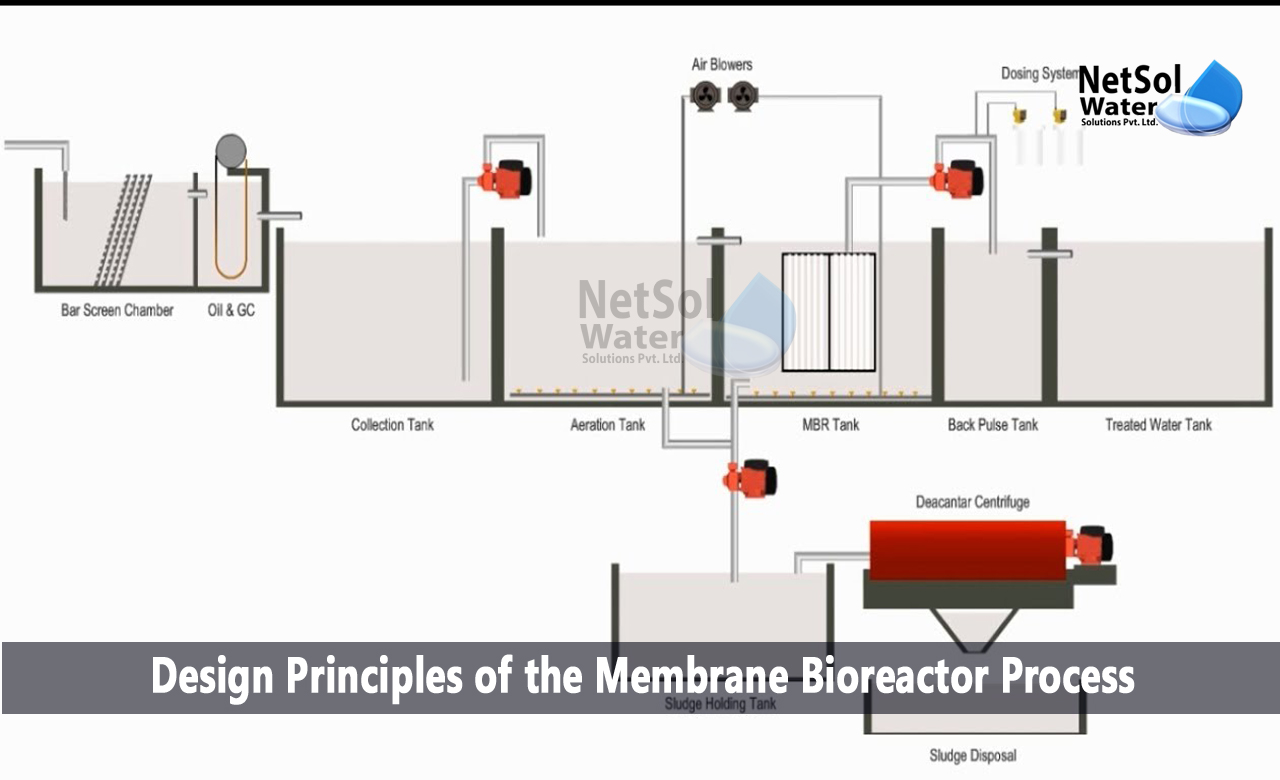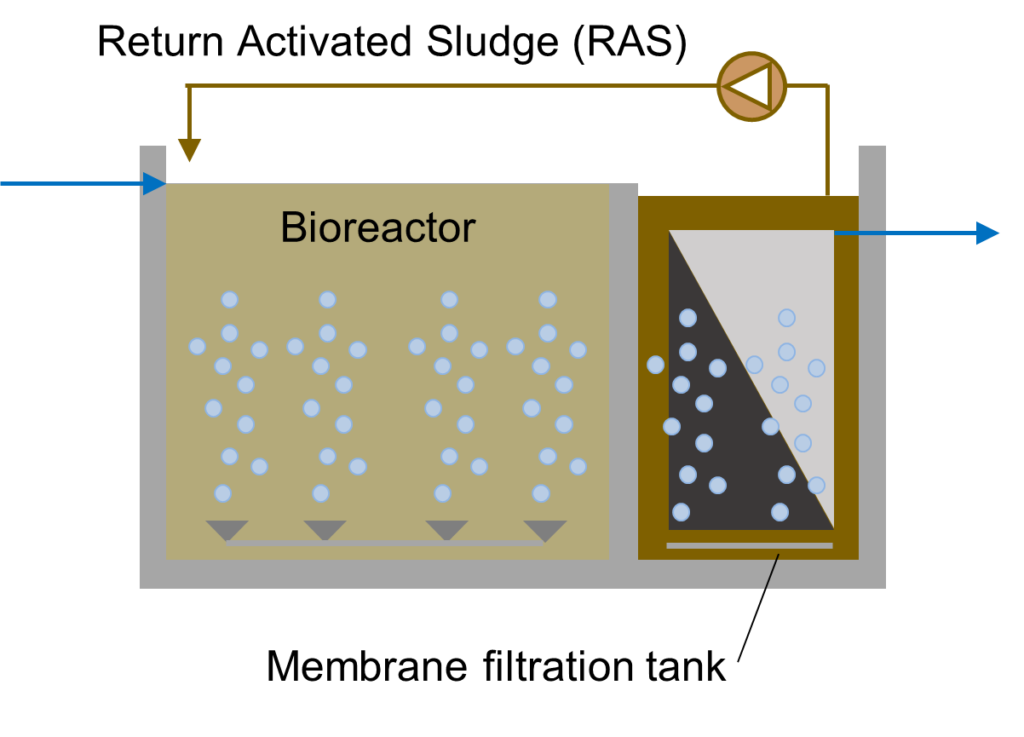Membrane Bioreactor Systems: A Key Technology for Water Reuse and Recycling
Membrane Bioreactor Systems: A Key Technology for Water Reuse and Recycling
Blog Article
Exactly How Membrane Bioreactors Are Changing Water Filtration Equipments
The development of membrane layer bioreactors (MBRs) represents a considerable development in the area of water purification, combining biological therapy procedures with sophisticated membrane layer filtering technologies. As global water deficiency magnifies, the function of MBRs in helping with drinkable water reuse and lasting water administration comes to be increasingly critical.
Review of Membrane Bioreactors
Membrane layer bioreactors (MBRs) stand for a significant advancement in water purification modern technology, as they combine organic therapy processes with membrane filtering. This assimilation improves the performance of wastewater treatment by utilizing microbes to break down natural pollutants while at the same time utilizing semi-permeable membrane layers to separate cured water from suspended solids and microorganisms.
The MBR system commonly is composed of a biological activator where the microbial populace metabolizes pollutants, complied with by a membrane filtering system that keeps biomass and permits only tidy water to go through. This twin performance causes higher effluent high quality contrasted to traditional treatment approaches. MBRs can be run in both set and continuous flow settings, offering flexibility in design and application.
Additionally, MBRs are identified by their small footprint, making them suitable for metropolitan settings with space restrictions. Membrane Bioreactor. They likewise enable the recuperation of water for reuse, thus contributing to water sustainability efforts. While MBR technology has actually acquired popularity in community and industrial applications, its functional complexities and energy needs demand careful factor to consider throughout application. Generally, MBRs are at the forefront of boosting water therapy efficiency and high quality, showcasing the possibility for ingenious services in ecological administration.
Advantages of MBR Modern Technology
The assimilation of biological therapy with membrane layer filtration supplies various advantages for water filtration procedures. Among the main advantages of Membrane Bioreactor (MBR) modern technology is its capacity to effectively remove both natural and inorganic impurities, bring about high-grade effluent. The membrane layers serve as a physical obstacle, avoiding put on hold solids and pathogens from going through, which improves the total safety and integrity of cured water.
Additionally, MBR systems require a smaller sized footprint contrasted to traditional therapy methods, permitting more reliable area application. This small style is specifically useful in metropolitan settings where land is restricted. MBRs likewise demonstrate operational flexibility, suiting varying influent top qualities and circulation rates without considerable performance deterioration.
In addition, the procedure uses improved nutrient elimination capabilities, especially for nitrogen and phosphorus, which are vital for preventing eutrophication in receiving waters. The reduced sludge manufacturing related to MBR technology additionally translates to decrease disposal prices, making it an economical option in the future - Membrane Bioreactor. In general, the advantages of MBR innovation position it as a leading choice for sustainable and innovative water filtration systems, addressing both environmental and financial concerns
Applications in Water Purification
Applications of Membrane Layer Bioreactor (MBR) innovation in water filtration are varied and impactful, attending to numerous therapy needs across numerous fields. MBRs efficiently combine organic therapy procedures with membrane filtration, making them optimal for metropolitan wastewater treatment, commercial effluent management, and even potable water reuse campaigns.
In local setups, MBRs are progressively employed to enhance the quality of dealt with wastewater, permitting for compliance with rigorous discharge policies and facilitating the recycling of water for irrigation and non-potable uses. Their portable design also makes them appropriate for urban settings where space is limited.
Industrially, MBR technology is used to deal with procedure water and wastewater, particularly in markets such as food and drink, pharmaceuticals, and fabrics. By effectively getting rid of pollutants and suspended solids, MBRs aid markets decrease ecological impacts while recuperating valuable resources from wastewater streams.
In Addition, MBRs are gaining traction in decentralized water treatment applications, where small-scale systems can be released in remote areas or creating regions. This adaptability enables communities to accomplish sustainable water monitoring services, boosting access to tidy water while lowering reliance on typical treatment techniques.
Study and Success Stories

In another instance, a fabric manufacturing facility in Bangladesh took on MBR modern technology to address its wastewater obstacles. The system minimized chemical oxygen demand (COD) levels from 1,200 mg/L to less than 100 mg/L, therefore meeting regulatory criteria and dramatically lessening ecological impact.
The webpage University of Cape Town's MBR installation has verified efficient in treating greywater for non-potable reuse on campus. This task not only conserves safe and clean water however additionally offers as an instructional model for sustainable techniques.
In addition, a seafood processing plant Click This Link in Norway utilized MBR innovation to treat effluents including high levels of raw material, accomplishing over 90% toxin elimination. These instance research studies emphasize MBR modern technology's versatility and its important function in boosting water quality across varied applications.
Future of Water Treatment Solutions
As international water shortage and contamination challenges magnify, innovative water therapy services are ending up being progressively necessary to make certain lasting access to clean water. The future of water treatment exists in the combination of advanced innovations that enhance the effectiveness and performance of purification procedures. Membrane bioreactors (MBRs) are at the forefront of this advancement, combining biological therapy with membrane layer purification to generate high-grade effluent suitable for various applications.

Arising fads such as source recuperation from wastewater, consisting of nutrients and energy, will certainly better transform treatment centers right into environmentally friendly hubs. Developments in nanotechnology and get redirected here membrane layer materials guarantee enhanced efficiency and longevity of filtering systems.

Verdict
In final thought, membrane layer bioreactors stand for a substantial improvement in water purification technologies, efficiently incorporating organic treatment with sophisticated membrane filtration. The many benefits, including boosted effluent high quality and minimized spatial requirements, make MBRs especially suitable for metropolitan applications. Their function in drinkable water reuse and sustainable water administration highlights their value in attending to global water scarcity challenges. Continued r & d will even more improve the efficacy and adoption of MBR modern technology, making certain a durable future for water therapy remedies.
The introduction of membrane layer bioreactors (MBRs) stands for a substantial innovation in the field of water filtration, merging organic therapy procedures with innovative membrane purification innovations. As international water shortage magnifies, the role of MBRs in facilitating potable water reuse and sustainable water management comes to be significantly important. They also enable the recovery of water for reuse, hence adding to water sustainability initiatives.As worldwide water deficiency and air pollution challenges intensify, ingenious water treatment remedies are becoming significantly essential to guarantee lasting access to tidy water. Their function in potable water reuse and lasting water management highlights their significance in dealing with global water shortage difficulties.
Report this page